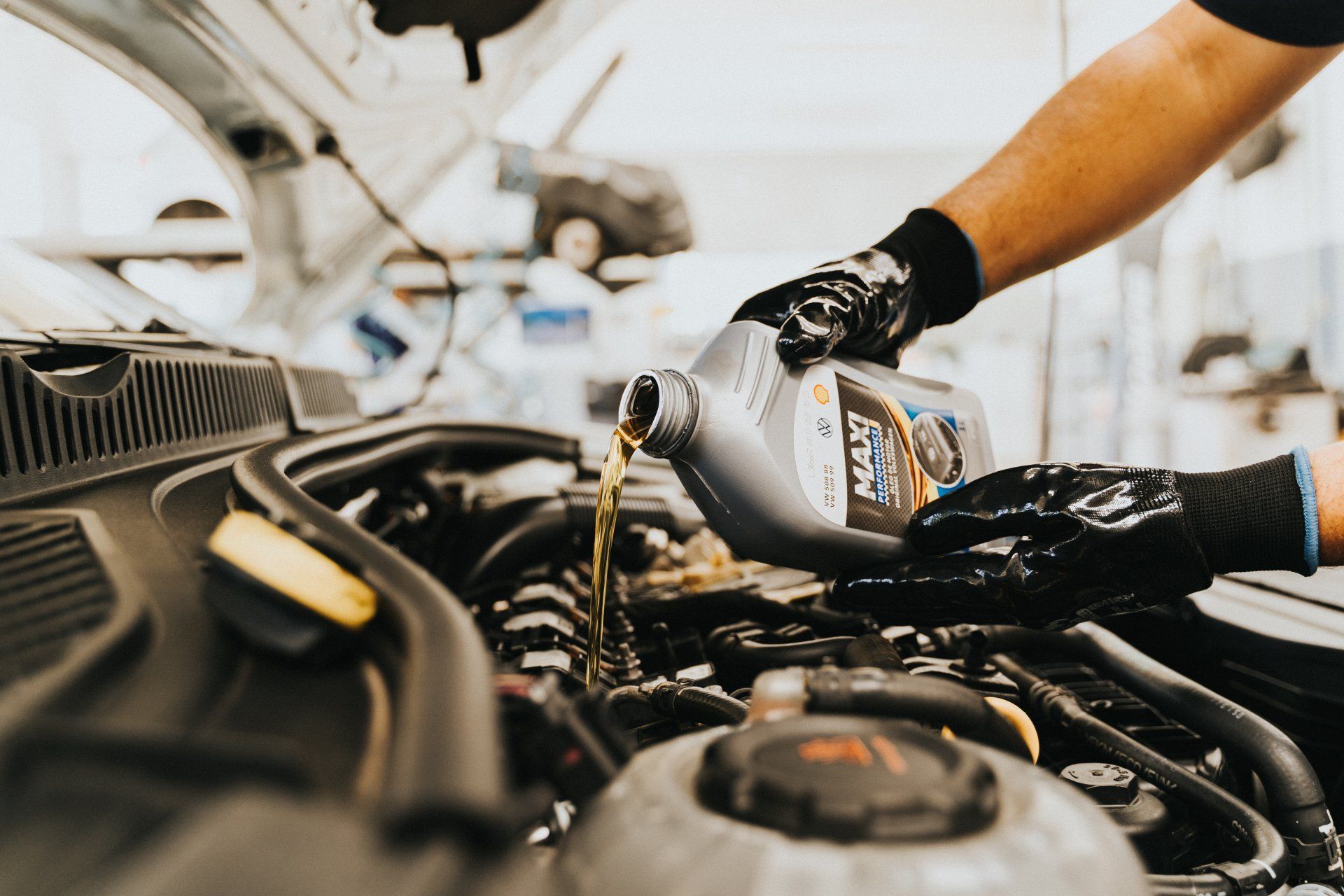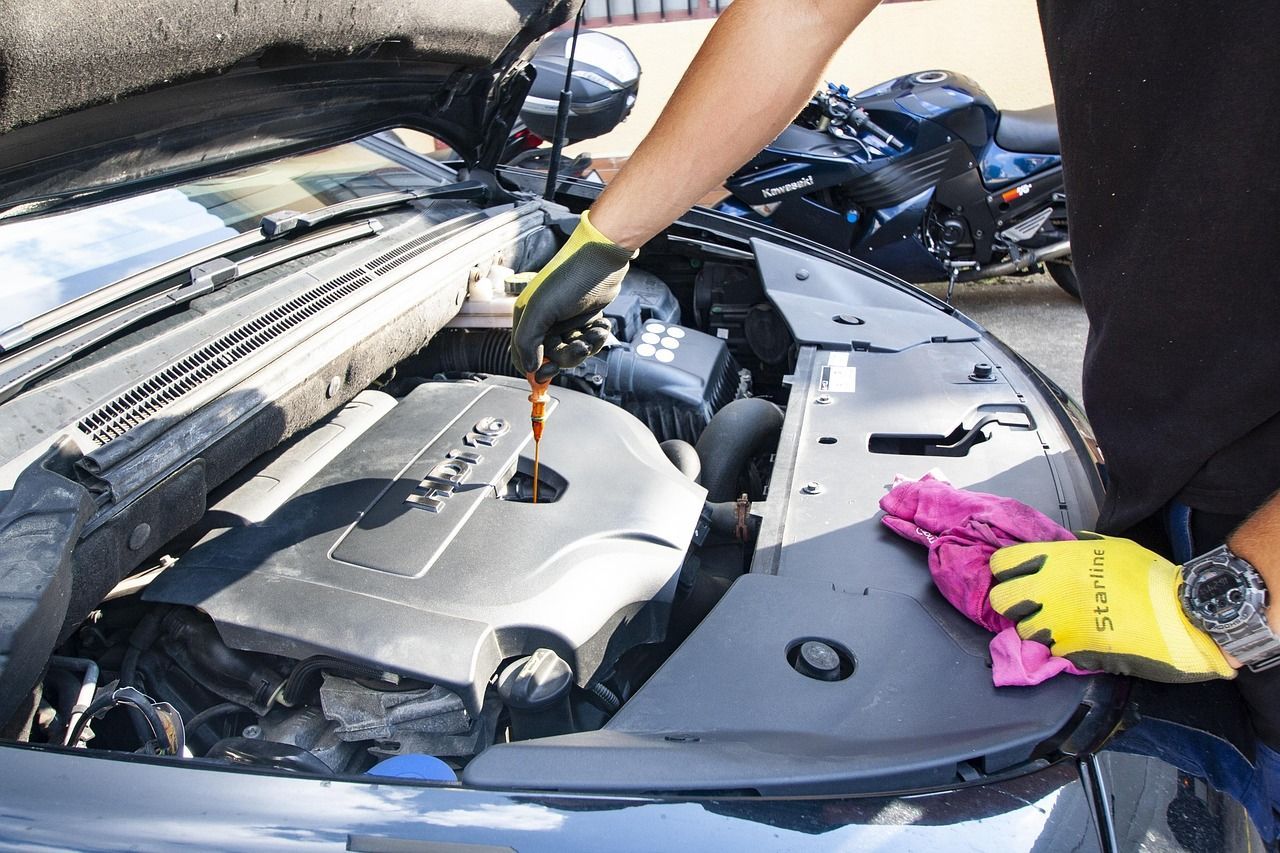How to Keep Your Car's Oil in Top Condition After Changing It: A Complete Guide
If you're like most car owners, you probably know that changing your oil regularly is one of the best ways to keep your engine running smoothly and efficiently. But do you know how to maintain your oil after changing it? In this blog post, we'll show you how to do just that, so you can get the most out of your
oil change and extend the life of your car.
Why is Oil Maintenance Important?
Oil is the lifeblood of your engine. It lubricates, cools, cleans, and protects the moving parts from wear and tear. Without engine oil, your engine would overheat, seize up, and eventually fail. That's why changing your oil every 3,000 to 5,000 miles (or as recommended by your manufacturer) is essential.
But changing your oil is not enough. You also need to maintain your oil after changing it, to make sure it stays clean, fresh, and effective. Here are some of the benefits of oil maintenance:
- It prevents sludge buildup, which can clog your engine and reduce its performance.
- It prevents oil leaks, which can damage your engine and the environment.
- It prevents oil oxidation, which can cause your oil to lose its viscosity and lubricating properties.
- It prevents oil contamination, which can introduce harmful particles and chemicals into your engine.
- It saves you money, by reducing the need for frequent
oil changes and avoiding costly repairs.
How to Maintain Your Oil After Changing It: A Step-by-Step Guide
Now that you know why oil maintenance is important, let's see how you can do it yourself. Here are some simple steps you can follow to keep your oil in top condition after changing it:
1. Check your oil level regularly.
This is the easiest and most basic way to monitor your oil condition. To do this, park your car on a level surface, turn off the engine, and wait for a few minutes. Then, pull out the dipstick, wipe it clean with a rag, and insert it back into the oil reservoir. Pull it out again and look at the markings on the dipstick. The oil level should be between the minimum and maximum marks. If it's too low, add some oil of the same type and grade as the one you used for your last
car engine oil change. If it's too high, drain some oil or take your car to a mechanic.
2. Check your oil color and consistency.
Another way to assess your oil condition is to look at its color and consistency. To do this, dip a clean rag or paper towel into the oil reservoir and examine the oil stain. Fresh
synthetic blend oil should be amber or golden in color and smooth in texture. If your oil is dark brown or black, thick or sludgy, or has metal flakes or debris in it, it means it's dirty or contaminated and needs to be changed as soon as possible.
3. Check your oil filter regularly.
Your
oil filter is responsible for trapping and removing any dirt, dust, metal shavings, or other impurities from your oil before they reach your engine. However, over time, your oil filter can get clogged and lose its effectiveness. That's why you should check your oil filter regularly and replace it every time you change your oil or at least once a year. To check your oil filter, locate it under the hood of your car (usually near the engine) and look for any signs of damage, leakage, or corrosion. If you see any of these signs, replace the filter with a new one of the same type and size as the old one.
4. Use synthetic oil if possible.
Synthetic blend oil change is a type of oil change that uses oil made from chemical compounds rather than crude oil. Synthetic oil has many advantages over conventional oil, such as:
- It lasts longer and doesn't degrade as quickly as conventional oil.
- It performs better in extreme temperatures and doesn't thicken in cold weather or thin in hot weather.
- It provides better protection and lubrication for your engine and reduces friction and wear.
- It improves fuel efficiency and reduces emissions.
If you want to switch to synthetic oil, make sure you consult your owner's manual or a mechanic first to see if your car is compatible with it. Also, make sure you use the same grade and viscosity of
synthetic blend oil as recommended by your manufacturer.
5. Avoid driving habits that stress your engine and consume more oil.
The way you drive can also affect your oil condition and consumption. Some driving habits that can stress your engine and consume more oil are:
- Driving short distances frequently without letting your engine warm up properly.
- Driving at high speeds or accelerating rapidly.
- Driving on rough roads or in dusty conditions.
- Towing heavy loads or carrying excess weight in your car.
- Idling for long periods of time or using accessories that draw power from the engine.
To avoid these habits, try to drive more smoothly and steadily, avoid unnecessary trips, keep your car clean and well-maintained, and reduce the load on your engine as much as possible.
How to Get Professional Oil Change Services
If you're not comfortable or confident with changing or maintaining your oil yourself, don't worry. You can always get professional help from a trusted and experienced mechanic. A mechanic can perform a thorough inspection of your oil system and recommend the best oil type, grade, and interval for your car. They can also perform an affordable oil change quickly and safely, using the right tools and equipment.
One of the best places to get professional help for your oil maintenance is Oil Buddy. Oil Buddy is a family-owned and operated business that has been serving the Mesa, AZ area for years. We offer quick oil changes, friendly service, and reliable care for personal and fleet oil change needs. We also provide fleet fuel management, and high-quality fleet air filter replacement. We use only high-quality oils and filters from reputable brands too!
If you have any questions about your oil maintenance, don't hesitate to call us at 480-892-4130. You can also visit our shop at 2828 S Country Club Dr., Mesa, AZ 85210. We're open Monday to Saturday from 8 am to 5 pm.
We hope you enjoyed this blog post and learned something new about how to maintain your car's oil after changing it. Remember, keeping your oil in top shape is one of the best ways to keep your car in top shape too. And if you need any help with that, we're always here for you at Oil Buddy. Thanks for reading and happy driving!





